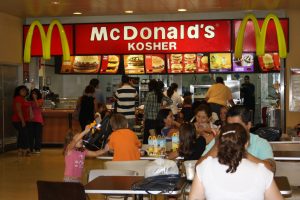15.3.4 Globalization: The 4th Level
John Wright
So far, we have examined the international system in terms of levels, and these levels have centred on the fact of the state. However, there are obviously many other actors on today’s global stage: international organizations, non-governmental organizations (NGOs), multi-national corporations, epistemic communities (knowledge-based networks that can be formal or informal), religious organizations, various forms of media, and many others, all of which have a huge influence on globalization and the international system. In addition to actors, there are also widely understood norms, such as human rights, norms on property, contracts, capitalism for economic affairs, and even the common use of English as a diplomatic language. These actors and norms also exercise boundaries and exert influence on state behaviour.

And because the international system is codified through states, these actors and norms also exist and operate at the state and sub-state levels of analysis. An example that quickly comes to mind is the multinational corporation: it exists as a sub-state actor in more than one state and yet it has a coherent interest that transcends national boundaries. Multinationals deal with municipalities to site and operate locally, they lobby national governments on issues in their jurisdiction, and they try to impact policy at the international level through international fora through influencing state foreign policy interests. Other non-state actors such as issue-based non-governmental organizations or religious organizations operate similarly.
There are other less evident non-state actors who exercise power differently, such as epistemic communities (knowledge-based communities). These are groups that range from scientists engaged in common collaboration to formal, large professional organizations that set international standards for their membership and/or activities.
What we see then, rather than three discrete levels of analysis, each with its own actors within them, is a complex web of interactions between and across these analytical levels. These interactions are between actors that look and behave differently at each level.
The density of this web of interactions, the numerous agents and outcomes that operate within it, and the outcomes they produce, comprise the true measure of the intensity and effects of globalization. With this analytical toolkit we can start to look at how ideology is operationalized in the international system and how it may develop from this point forward.
Media Attributions
- Kosher McDonald’s, Abasto Shopping, Buenos Aires © Geogast is licensed under a CC BY-SA (Attribution ShareAlike) license

